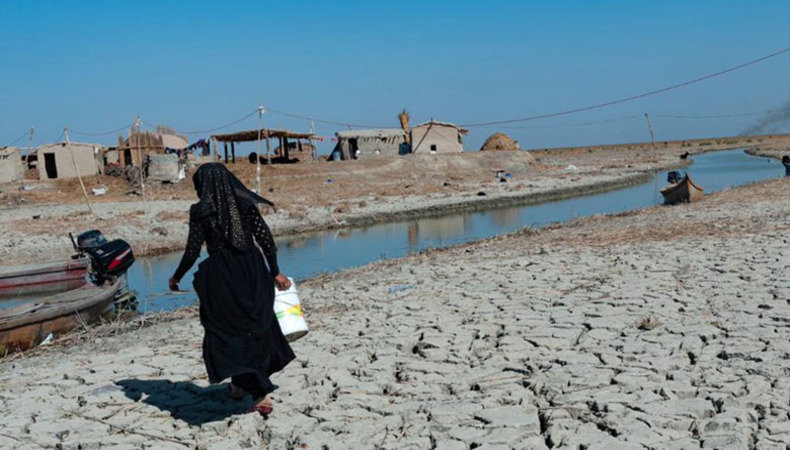Iraq and Syria Witness Agricultural Drought, High Temperatures

Iraq and Syria have been battling a yearslong extreme drought which has been worsened by the burning of fossil fuels. The drought, which is the second worst on record, has destroyed wheat crops and led to tensions in communities over access to dwindling water supplies.
This is Iraq’s fourth consecutive year of drought. It has displaced at least 55,290 people in central and southern Iraq in the last six years, leading numerous families into poverty because land is no longer productive or can be used for agriculture. The once fertile land is become arid each year, desertification taking over.
Syria is also witnessing a severe and long-term drought. Unusual dry conditions during the wet season exacerbated water deficit. Experts say the drought, scarcity and high cost of water, food and energy are mutually reinforcing and underpinning Syria’s food security crisis.
Iraq and Syria Mess of Problems
Iraq and Syria is a mess of problems. Scientists highlighted years of conflict and political instability, combined with the challenges of rapid urbanization have limited the ability of local communities to respond to the drought.
And this has steadily transformed into a humanitarian crisis. Rana El Hajj, a technical adviser at the Red Cross Red Crescent Climate Center in Lebanon, says the crisis is evidence of how global warming caused by the burning of fossil fuels can act as a threat multiplier. “The drought is just an indication of a reality which could affect vulnerable groups across the globe as human-induced challenges, including environmental degradation and conflict, can compound the increasing risk of climate change to yield unprecedented impacts.”
Researchers established that warming caused by the burning of fossil fuels made the high temperatures that continue to impact the region 16 times as likely in Iran, and 25 times as likely in Iraq and Syria. This has also been driven by climate change.
Keep Reading
Oman: Town of Jinns, Bahla Where Men Turn into Donkeys
Osama bin Laden Letter to America: Why Has it Resurfaced
High Temperatures and Drought
Experts explained that high temperatures cause dry conditions because it increases evapotranspiration – how much water evaporates from the soil, water bodies and plants. And combined with lack of rainfall, it brought in agricultural drought. Friederike Otto, a senior lecturer in climate science at the Grantham Research Institute, said this will only get worse if we keep burning fossil fuels, or give licenses to explore new oil and gas fields.
It should be noted that with major oil companies and gas rigs and fields, Middle East is one of the most vulnerable regions to the effects of climate change. Iraq and Syria are this era’s examples.




